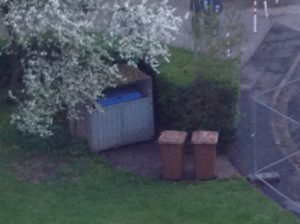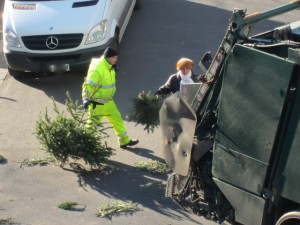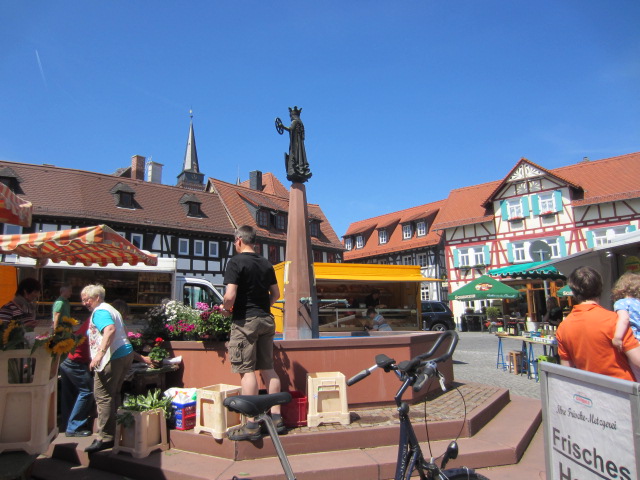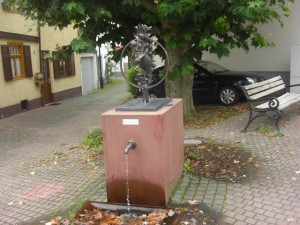When you first arrive in Germany, your new residence comes with quite a few new rules. Among them is the business of how to separate the trash.

Biomüll Tonnen
Some of you care to do so, so here is the list of waste items for the brown container (German: Biotonne):
- kitchen waste – anything raw or cooked
- vegetables and fruits (no citric fruits though)
- cheese, fish, meat, bones, and cold cuts
- egg shells and nut shells
- milk, flour, and cereal products
- dry goods having gone past the expiration date (without the packaging)
- oils and fats (solidified)
- coffee grounds, filter bags, tea bags, and tea leaves
- paper towels, paper napkins, and tissues
- newspaper used for wrapping
- lawn cuttings
- shrubs, fallen leaves, and bark
- other organic waste, such as hair, feathers, cat litter, wood shavings, and sawdust (only from untreated wood)
- hay, straw, and pots made of peat and cardboard







